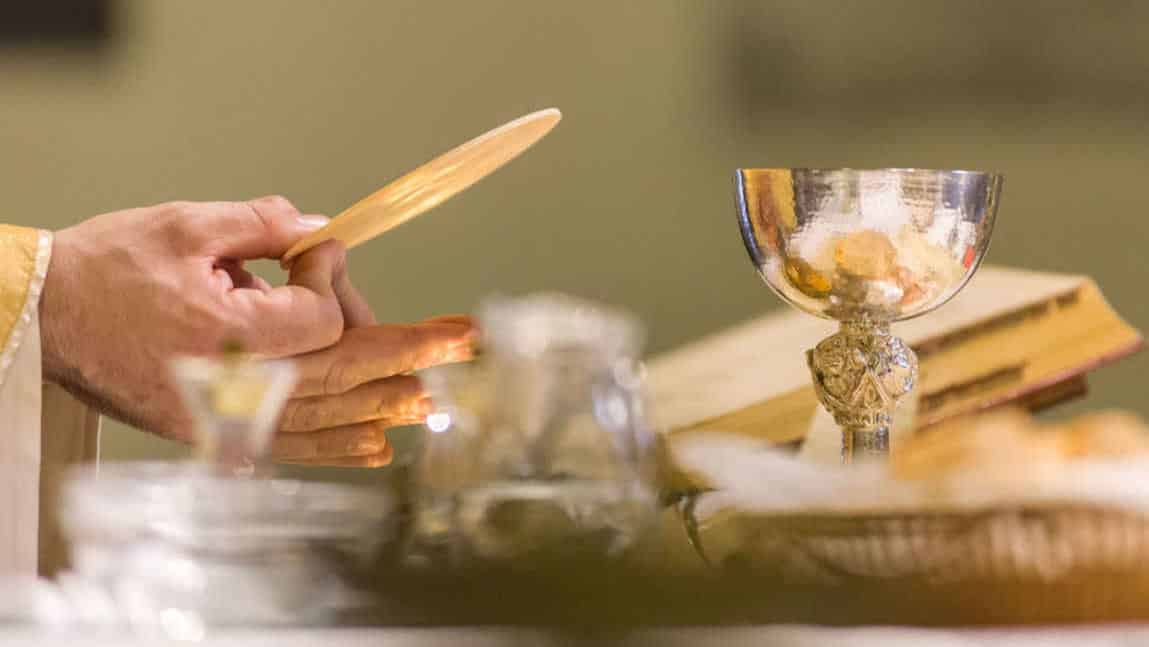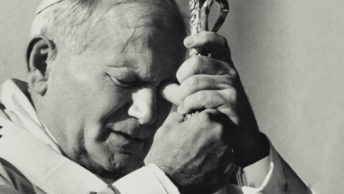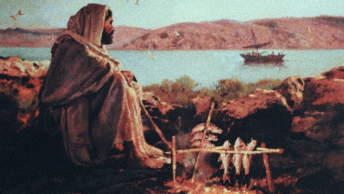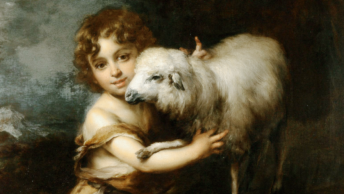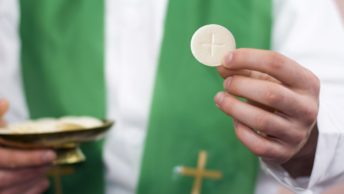I love this season! Especially when it is sunny and the bright colors of the leaves hit the senses with more boldness as we walk on infinite shades of brown and yellow and red. Yes, there is sadness, too, because the leaves are falling to the ground and there is no stopping them; but we know, deep inside us, that there will be another spring time and then another summer.
Even the Church joins in our contained celebration with a mixture of joy, sadness and hope. During the first few days of November we are led by nature itself to live as a Community of Faith, as a Church, and to strengthen our bond with those close to us who have been taken from our sight in death but never from our memory, never from our hearts.
Today, as we recall people that were with us but a few months ago, or a few years ago, or a long time ago, I would like to point out to you the obvious: our Eucharist is the only type of memorial that draws believers from all walks of life and from all age brackets together.
The reason is simple: every single one of us has lost someone very dear. Every single one of us misses someone significant in his/her life. And every single one of us senses that, together, as a Community of faith, we can bring comfort to each other in our losses and enkindle our hope for immortality, for a reunion that shall make our joy endless and complete.
From the perspective of Christian faith, this world can be divided in two groups: the group of those who have lost hope; who think that this life is the only stretch that one gets to live and those who are filled with hope and, thus, believe that people who have gone before them are alive and joyful in God’s endless, warm embrace.
In the Eucharist we proclaim the death of the Lord Jesus and profess his resurrection until he comes again; i.e., until the reunion with our loved ones will be completed and sealed forever. After the consecration of the Bread and the Cup, with unwavering longing, we cry out to the Lord Jesus directly: “We proclaim your Death, O Lord, and profess your Resurrection until you come again.”
Noticing our sadness and the pain of the temporary separation from our loved ones who have died, our God inspires St. Paul to write this: “Thus we shall always be with the Lord. Therefore, console one another with these words.’
But, you may ask, how do we get to the point in which our hope will be such that the pain of the temporary separation is mitigated and made bearable by our faith? Or, how can we, as a Church, as a Community of faith, turn our sadness into a celebration of expectation and joy?
The parable that Jesus tells us on this 32nd Sunday in Ordinary Time might accomplish that for us. It is an odd story of an unusual wedding with a bittersweet ending: happy for some, tragic for others. On second thought, it is stranger than that, in the sense that, we have a groom who is late to his own wedding; we have nuptials with ten bridesmaids that are so far from being stirred by the event that they fall asleep; and, apparently, the bride is nowhere to be found! And, to top it all, we are asked to imagine that some in this wedding party expect vendors of lamp oil to stay open 24/7, sort of Meijer’s or Kroger, all in Palestine circa 30 AD!
My friends in Christ, the significance and the lesson of this mysterious story must be in its details and in its oddities.
Obviously, the Divine Groom is Jesus himself. His coming seems to be delayed. Evidently, his coming seems delayed only to those who long for him; who desire the final and eternal reunion with all their loved ones and everyone else in the Family of God the Father. The delay is felt only by those who, day in and day out, are determined to stay awake (to borrow the words of Jesus himself), i.e., they desire the full growth of the Body of Christ (Church) more than anything else on this earth.
You see, the second coming of Christ is another way of saying that the Church, his Body, has reached its fullness; it has expanded as much as possible. In this context, then, we begin to understand why Jesus, in his parable, doesn’t mention the Bride. The Bride, the Church, the Body of Christ is not mentioned because it is realized by trying to stay awake, by longing for Christ, by doing everything within our power to help the Church grow and expand.
One consoling fact is that our human weaknesses, our frailty, don’t disqualify us from being part of the Bride. All of us, wise and foolish alike, doze off and fall asleep: such is our human nature.
What makes the difference therefore is our full-hearted participation in the event that is the Wedding Feast of Jesus and His Bride, the Church. All that we do must be consistent with and in function of the Wedding Feast. Whatever we think, say and do has to be for that final encounter with Christ, the divine Groom.
And to make things as simple as possible, we can say that the difference between those left out in the cold and those admitted to the wedding before the door is shut, is the amount of oil that they have secured in anticipation of that encounter.
That oil is the oil of caring, of loving, of serving each other with dedication, with perseverance, with joy. It is oil that has to be promptly available 24/7! Looking at what we are doing here together, we must realize how blessed we are, that every time we do Eucharist, we are having a dress rehearsal of the eternal Wedding Feast.
The Eucharist enables us to increase our motivation in securing more oil.
Today in particular, we pick up extra oil of loving by praying for and by remembering our loved ones who died marked with the sign of faith. And we resolve to make sure that our supply of oil is abundant also by reminding each other here present that, one day, we shall always be with the Lord.

